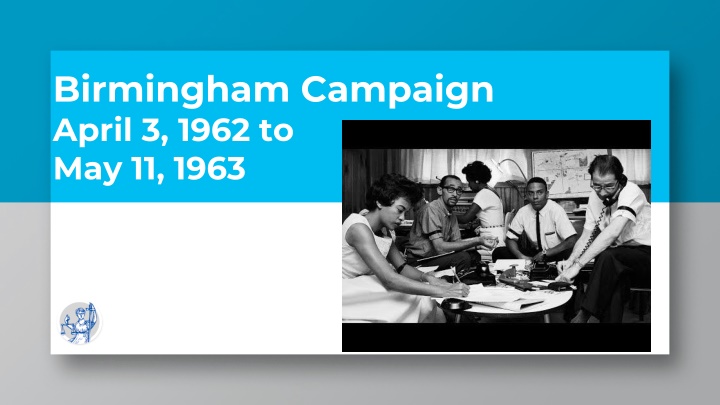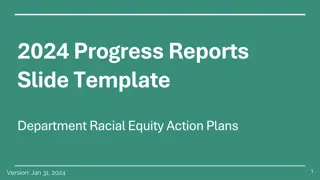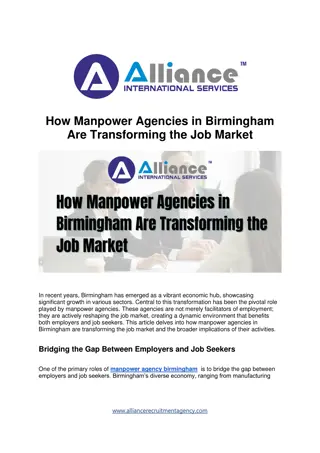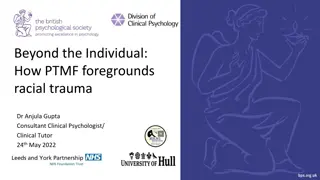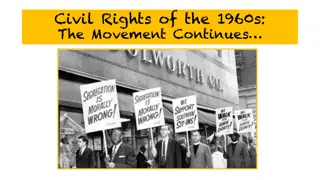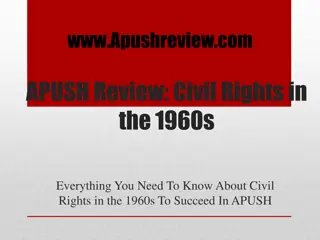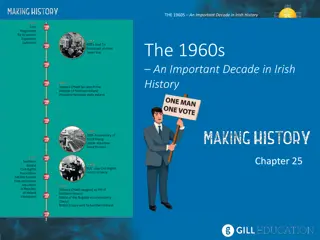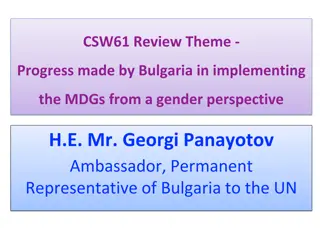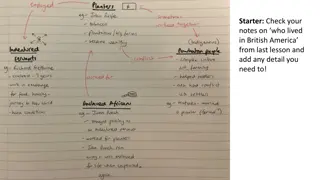The Birmingham Campaign: Fighting for Racial Equality in 1960s America
The Birmingham campaign, led by Dr. Martin Luther King Jr. and the SCLC, was a pivotal moment in the civil rights movement, aiming to end racial inequality through nonviolent protests and peaceful demonstrations. The efforts led to significant progress in desegregating public facilities and promoting fair hiring practices for Black citizens in Birmingham, Alabama. Explore the key events and impact of this historic campaign including Dr. King's influential Letter from a Birmingham Jail.
Download Presentation

Please find below an Image/Link to download the presentation.
The content on the website is provided AS IS for your information and personal use only. It may not be sold, licensed, or shared on other websites without obtaining consent from the author.If you encounter any issues during the download, it is possible that the publisher has removed the file from their server.
You are allowed to download the files provided on this website for personal or commercial use, subject to the condition that they are used lawfully. All files are the property of their respective owners.
The content on the website is provided AS IS for your information and personal use only. It may not be sold, licensed, or shared on other websites without obtaining consent from the author.
E N D
Presentation Transcript
Birmingham Campaign April 3, 1962 to May 11, 1963
Summary The Birmingham campaign was part of the civil rights movement to bring an end to racial inequality. The Birmingham campaign was organized in early 1963 by the Southern Christian Leadership Conference (SCLC) and led by Dr. Martin Luther King Jr. to bring attention to the integration efforts of African Americans in Birmingham, Alabama. The protests gained national attention and eventually ended segregation at city restrooms, drinking fountains, and lunch counters. Learn how the SCLC first started.
What was the Birmingham Campaign? Visit the Library of Congress to view the CBS Eyewitness: Breakthrough in Birmingham special broadcast.
Nonviolent Peaceful Protest Methods Listen to learn about Dr. King s belief in a nonviolent approach to bring about change. Protesters who participated in marches, sit-ins, and demonstrations were instructed by King to remain peaceful, no matter how they were treated by police or the community.
Learn more about the Good Friday Marchand Dr. King s arrest.
Letter from a Birmingham Jail After he was arrested, King was criticized by other Black religious leaders for being an agitator and extremist. He responded with a Letter from a Birmingham Jail. This letter is considered one of the most important documents in the history of the Civil Rights Movement. In the letter, King argues that Black Americans have waited long enough to receive equal treatment. His letter is a call for unity in a nonviolent protest against the oppression of segregation and discrimination. Injustice anywhere is a threat to justice everywhere. Discover even more about this famous letter!
National Media Coverage While Dr. King was originally hesitant for young people to march, by May 2, 1963, he supported the Children s Crusade. Examine more about how the media covered the Birmingham Campaign.
On May 10, 1963, Dr. King and other leaders announced an agreement from the city of Birmingham to desegregate lunch counters, restrooms, drinking fountains, and dressing rooms within 90 days. The city also agreed make hiring practices fair for Black citizens.
